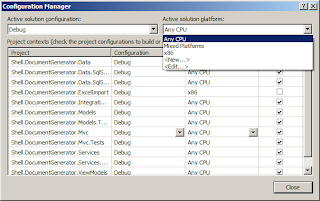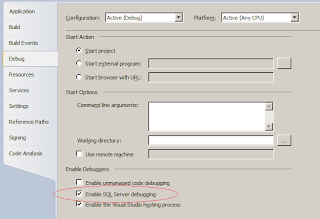I've been using the freetts library for speech synth in the communication book program I've been working on, and have tripped over a bug in freetts running under openJdk. The freetts source code lives in a svn repository on sourceforge. The first step in troubleshooting is to build the library from source. In order to track any local experimentation / fixes I need to have some kind of local source control, and svn sucks too much to provide this. The obvious next step is to pull the sources down with git-svn (or svn2git as github recommends).
After a couple of aborted attempts I was reminded how the loosely defined structure of a svn repository and the over-generalization of tags & branches allows for a complete mess, which then is a pain to import cleanly.
"And they want to make snapshots of smaller subdirectories of the filesystem. After all, it's not so easy to remember that release 1.0 of a piece of software is a particular subdirectory of revision 4822." -- Argh! Terrible "feature", if you're using this feature then you're doing source control wrong! (Quote taken from http://svnbook.red-bean.com/en/1.7/svn.branchmerge.tags.html )
And so, for my sins, I set about importing the history, and hacking away at it with the excellent tools git provides to turn it into something that actually linked together correctly and didn't make me feel ill by including CVSROOT all over the place (yes, it's not the first migration this project's been through).
On the plus side, it is fantastic that the open source license gives a user of a library such as myself the right to go ahead and do something like this and to share the improvement with the world, regardless of whether it's something the original creators / maintainers would have done.
The layout of the FreeTTS svn repo is not consistent in directory structure, which means the svn import tools don't behave quite as one might expect. This is the inevitable downside to subversions poor choice of architecture around "everything's just a directory structure". (Bitter? Me? Never!)
Here's a taster of how inconsistent the layout is and what a challenge is ahead tidying it up:
tim@atom:~/repo/freetts.svn$ ls */*
branches/release:
FreeTTS
tags/freetts:
FreeTTS
tags/pre-rel1-1:
FreeTTS
tags/rel_1_0_5:
CVSROOT FreeTTS
tags/rel1_1_0:
FreeTTS
tags/rel1_1_2:
FreeTTS
tags/rel1_2_0:
CVSROOT FreeTTS
tags/rel1_2_1:
FreeTTS
tags/rel1_2_2:
acknowledgments.txt build.xml demo.xml index.html license.terms overview.html RELEASE_NOTES speech.properties tests
ANNOUNCE.txt demo docs lib mbrola README.txt rtp src tools
tags/rel_1_2_beta:
FreeTTS
tags/rel1_2beta2:
CVSROOT FreeTTS
tags/start:
FreeTTS
tags/sun:
FreeTTS
trunk/CVSROOT:
checkoutlist commitinfo config cvsignore cvswrappers editinfo loginfo modules notify rcsinfo syncmail taginfo verifymsg
trunk/FreeTTS:
acknowledgments.txt build.xml demo.xml index.html license.terms overview.html RELEASE_NOTES speech.properties tools
ANNOUNCE.txt demo docs lib mbrola README.txt rtp src unittests
It took all my git-fu powers to sort out this mess. Below is a time shortened sequence of how it was done, just in case I have the misfortune to need to do it again. I ended up abandoning all the ancient tags as they were going to be more effort than I liked to fix, and they could be added retrospectively if anyone really cared. It took me many attempts to get to the below, and this is what I've reconstructed from my fragmented history, hopefully it will provide enough clues should you wish to do similar.
FreeTTS project urls: Project front page http://freetts.sourceforge.net/ , project site http://sourceforge.net/projects/freetts/ , repo browser http://freetts.svn.sourceforge.net/viewvc/freetts/ , svn http access https://freetts.svn.sourceforge.net/svnroot/freetts/
At time of writing the current svn revision is 582.
apt-cache show freettsPackage: freetts
Priority: optional
Section: universe/java
Installed-Size: 13532
Maintainer: Ubuntu Developers <ubuntu-devel-discuss@lists.ubuntu.com>Original-Maintainer: Bdale Garbee <bdale@gag.com>Architecture: all
Version: 1.2.2-3Depends: default-jre | java2-runtime
Filename: pool/universe/f/freetts/freetts_1.2.2-3_all.deb
Size: 9456904
MD5sum: 183bed09b1b8e2d8642f46b7538273f4
SHA1: 8df47df82124704b890f446a1bc958d33fd273d3
SHA256: 8920440eaa58c087cb268e8e2a64d44ac873fb44d49b34f180f587f9c69421a7
Description-en: speech synthesis system
FreeTTS is a speech synthesis system written entirely in the Java(TM)
programming language. It is based upon Flite, a small run-time speech
synthesis engine developed at Carnegie Mellon University. Flite in turn
is derived from the Festival Speech Synthesis System from the University
of Edinburgh and the FestVox project from Carnegie Mellon University.
Homepage: http://freetts.sourceforge.netDescription-md5: a346fe6dcc2c0164ec6b7c3891945e56
Bugs: https://bugs.launchpad.net/ubuntu/+filebugOrigin: Ubuntu
So here's the import more or less as it happened:
mkdir freetts.svn.git; cd freetts.svn.git
svn2git --verbose https://freetts.svn.sourceforge.net/svnroot/freetts/
git gc
cat .git/config
[core]
repositoryformatversion = 0
filemode = true
bare = false
logallrefupdates = true
[svn-remote "svn"]
noMetadata = 1
url = https://freetts.svn.sourceforge.net/svnroot/freetts fetch = trunk:refs/remotes/svn/trunk
branches = branches/*:refs/remotes/svn/*
tags = tags/*:refs/remotes/svn/tags/*
[branch "release"]
remote = .
merge = refs/remotes/svn/release
# get a copy without the svn references (which stop us seeing whether the rewritten history is free of old cruft)
git clone freetts.svn.git/ freetts.git
cd freetts.git/
gitk --all &
# The following is done while keeping an eye on and refreshing (ctrl+f5) gitk to see the effects:
# Filter out the cvs rubbish so that git can match up commits that do have it with commits that don't
git filter-branch --tree-filter 'rm -rf CVSROOT' --prune-empty -- --all
# Remove the unnecessary top level folder (which inconsistently existed)
git filter-branch --prune-empty --subdirectory-filter FreeTTS/ -- --all
# Remove the backup refs filter-branch creates
rm -rf .git/refs/original/
# delete all the crappy svn "tags", just tag the latest
git tag -d `git tag`
Deleted tag 'freetts' (was 8d953b7)
Deleted tag 'pre-rel1-1' (was d1c597f)
Deleted tag 'rel1_1_0' (was 625abdd)
Deleted tag 'rel1_1_2' (was b51fb71)
Deleted tag 'rel1_2_0' (was 7a4fc18)
Deleted tag 'rel1_2_1' (was a126a4a)
Deleted tag 'rel1_2_2' (was b3a0dcf)
Deleted tag 'rel1_2_2@557' (was bf94dbe)
Deleted tag 'rel1_2beta2' (was c0d90e9)
Deleted tag 'rel_1_0_5' (was e95aff8)
Deleted tag 'rel_1_2_beta' (was 1723b2d)
Deleted tag 'start' (was c020efe)
Deleted tag 'sun' (was cfadbc8)
# correct commit found manually:
git tag v1.2.2 ae49425
and finally, push to github
git remote add origin .... (my repo details)
git push --mirror
You can find my repo at https://github.com/timabell/FreeTTS
and the intermediate copy here: https://github.com/timabell/FreeTTS-svn-mirror
Here's the reason I didn't bother with tags in the end: I couldn't rewrite the tags as they had no author:
git filter-branch --tree-filter 'rm -rf CVSROOT' --prune-empty --tag-name-filter cat -- --tags
Cannot create a new backup.
A previous backup already exists in refs/original/
Force overwriting the backup with -f
tim@atom:~/repo/freetts.git$ rm -rf .git/refs/original/
tim@atom:~/repo/freetts.git$ git filter-branch --tree-filter 'rm -rf CVSROOT' --prune-empty --tag-name-filter cat -- --tags
Rewrite 8611e271692fc33e6160a2a217b9b3060dfbcd1d (1044/1044)
Ref 'refs/tags/freetts' was rewritten
WARNING: Ref 'refs/tags/pre-rel1-1' is unchanged
WARNING: Ref 'refs/tags/rel1_1_0' is unchanged
Ref 'refs/tags/rel1_1_2' was rewritten
Ref 'refs/tags/rel1_2_0' was rewritten
Ref 'refs/tags/rel1_2_1' was rewritten
Ref 'refs/tags/rel1_2_2' was rewritten
Ref 'refs/tags/rel1_2_2@557' was rewritten
Ref 'refs/tags/rel1_2beta2' was rewritten
Ref 'refs/tags/rel_1_0_5' was rewritten
Ref 'refs/tags/rel_1_2_beta' was rewritten
Ref 'refs/tags/start' was rewritten
Ref 'refs/tags/sun' was rewritten
freetts -> freetts (b3a4bbf8768ade6275c91ce0e76d933e30b3ddbf -> 48e84e3560e765db3b33479e2e9a76fe2ccf3550)
error: char79: malformed tagger field
fatal: invalid tag signature file
Could not create new tag object for freetts
git show rel_1_2_beta | head
tag rel_1_2_beta
Tagger: (no author) <(no author)@4963320b-1a4a-0410-81c8-f0a525965860>Date: Mon Dec 22 14:46:05 2003 +0000
This commit was manufactured by cvs2svn to create tag '\''rel_1_2_beta'\''.
commit 57ed00e981585aad590c9521d7c3a0bccf6284fa
Author: (no author) <(no author)@4963320b-1a4a-0410-81c8-f0a525965860>
Date: Mon Dec 22 14:46:05 2003 +0000
















